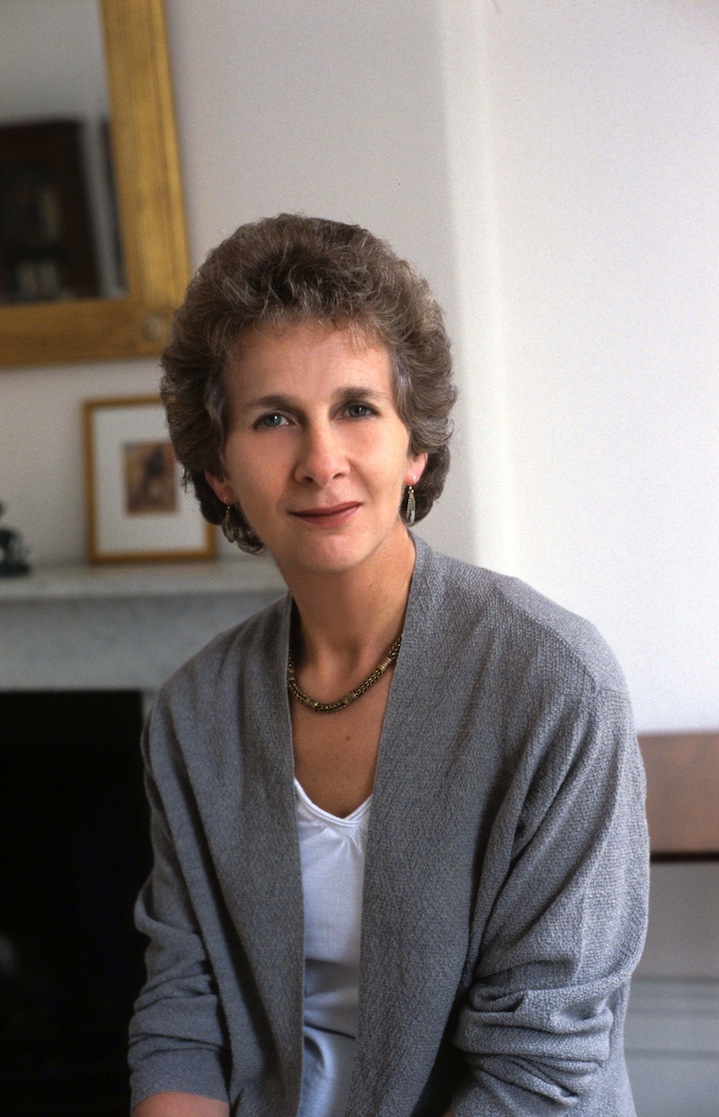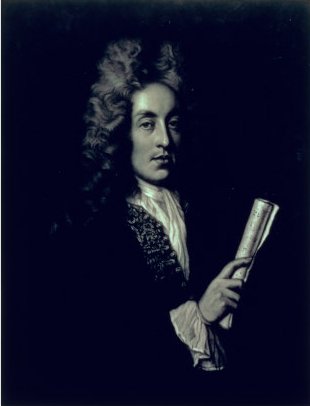Turning 40, Music of the Baroque sees a bright future

Baroque music has been around for 400 years, give or take a decade or two. Vivaldi’s The Four Seasons is as ubiquitous on concert calendars as Beethoven’s symphonies. But 40 years ago in Chicago live performances of Baroque music were as rare as an independent alderman.
The city’s major musical organizations were going strong in the early 1970s. Georg Solti was in his first, heady years as Chicago Symphony Orchestra music director, and Lyric Opera was internationally recognized. James Levine was bringing new excitement to the Ravinia Festival and the Grant Park Orchestra was offering free concerts four nights a week during the summers. But the profusion of smaller orchestras and chamber ensembles that Chicago music lovers now take for granted had not yet taken root.
“There was nothing,” said Elliott Golub, longtime concertmaster of Music of the Baroque, which kicks off its 40th anniversary season Sept. 26 and 27. Founded in Hyde Park by organist and choir director Thomas Wikman, the ensemble included Golub as concertmaster from its first concerts until he retired four years ago.
The CSO would occasionally do a big Bach project, Golub said, mentioning a St. Matthew Passion and B minor Mass. But it made little sense–artistically or economically–for an orchestra with 100-plus players to explore Baroque music, which was typically written for smaller forces.
“Baroque music was pretty esoteric,’’ said Marjorie Stinespring, recalling the local music scene before MOB’s arrival. An emeritus professor in the math and computer science department at Chicago State University and an ardent music lover, she has been a member of MOB’s board for nearly its entire existence. Rockefeller Chapel performed Baroque oratorios, she said, but she couldn’t recall any local groups that offered a year-round season dedicated solely to the period.
“Even Mozart and Haydn were considered a bit odd,’’ she said. “If you said you liked Bach, either you were terribly peculiar or attempting to impress someone.’’
Jane Glover, the British conductor and music scholar who succeeded Wikman as MOB music director in 2002, recalled the rise of interest in Baroque music in the early 1970s. A graduate of Oxford University, she wrote her doctoral thesis on Francesco Cavalli, a 17th century Venetian opera composer.
“When I started,’’ said Glover, “in the U.K. we were just cottoning onto the period instrument scene. Nobody really did much Handel beyond endless Messiahs. You occasionally would see a Julius Caesar perhaps. But now you can’t walk into an opera house on the planet without seeing a Handel opera on their schedule, which is thrilling.”
Interest in music composed between 1600 and 1750 grew from a seed planted in the mid-1950s by ensembles like Nikolaus Harnoncourt’s Concentus Musicus in Vienna. Music scholars began to release studies about Baroque performance practice, and musicians, especially in Europe, gave their theories about using period instruments a try. Innovative labels like Nonesuch sold lively recordings of Baroque music at cheap prices, and millions of listeners in Europe and the U. S. fell in love with the Brandenburg Concertos, Purcell motets and Handel oratorios. In Chicago, the time was right for a group like Music of the Baroque.
Wikman organized Baroque music performances at the intimate Church of St. Paul and the Redeemer at 50th and Dorchester, where he was music director. He quickly attracted a talented group of musicians and singers and a loyal audience. Long-time MOB subscribers remember a particularly galvanizing performance of Bach’s St. Matthew Passion in 1974. Solti and the CSO presented the piece that same season, and the contrast with Wikman’s smaller, more flexible forces underscored the value of a resident Baroque ensemble. Lucille Ollendorff, a teacher and Hyde Park resident with boundless energy, offered to help Wikman establish his group. She eventually became MOB’s dynamic general manager, holding the post until her death in a car accident in 1987.
In the early days, few envisioned that MOB would become one of Chicago’s leading arts institutions.
“We didn’t know anything,’’ said Golub, with a laugh. “It was ‘Hey, kids, let’s get together and put on a show.’ But there turned out to be nice audience right from the start.
“Of course, whether that makes a viable organization,’’ he said, his voice trailing off. “Every group has a big audience for five minutes, and you know what happens to most of them.’’

MOB thrived, in part, because some of the city’s top musicians, including members of the CSO and Lyric Opera’s orchestra, were itching to play Baroque music. Robert Morgan, currently MOB’s principal oboe and Lyric Opera’s solo English horn and assistant principal oboe, was among them. He studied with Ray Still, the CSO’s legendary former principal oboist, who performed with MOB during its first seasons. When Still decided not to continue, Morgan replaced him.
“Baroque music is always a prime area for oboists as far as repertoire is concerned,’’ said Morgan. “And when you study with Ray Still, you study a lot of Bach. In college you would play church gigs, things like the Vivaldi Gloria. You’re involved in Baroque music almost from the beginning when you start playing the oboe.’’
There have been rough patches during MOB’s four decades. Ollendorff’s death, which occurred on her way home from a MOB concert, was a huge shock, and Stinespring recalls seasons when money was desperately tight. Wikman did not leave on happy terms in 2001, though he is still based in Hyde Park and has an active international career as an organist. As with most organizations, the faltering economy has battered MOB’s bottom line.
In terms of Baroque style, MOB continues to occupy a middle ground that mixes modern instruments with 17th and 18th century performance practices. Whether that changes in years to come, since students in today’s music schools and conservatories are learning to play on period as well as modern instruments, remains to be seen.
Whatever the future holds, MOB is ready to celebrate as it moves into its anniversary season. Repertoire for 2010-11 includes two choral blockbusters: Bach’s Christmas Oratorio in early December and Handel’s Messiah during Lent, both led by Glover. The season opens Sept. 26-27 with Glover conducting an all-Purcell program: Dido and Aeneas, the Ode to St. Cecilia and music from Timon of Athens. Nicholas Kraemer, MOB’s popular principal guest conductor, leads a choral program of Handel and Vivaldi works in November and an orchestral concert highlighting three of Bach’s Brandenburg concertos in March.
William Jon Gray, MOB’s new chorus director, will lead the annual Christmastime brass and choral concerts. In January Glover focuses on symphonies by Haydn and concertos by Mozart. In May she closes the season with performances of Mozart’s final three symphonies.
At a time when most arts groups are cutting their schedules to save money, MOB has added one program and two performances. No easy decision, especially since the season was planned during the height of the economic meltdown in fall 2008.
“When everybody was melting down and making their seasons less,’’ said Glover, “we actually thought, ‘To hell with it,’ and added another set of concerts.”
A 40th anniversary calls for something special, and the ensemble had “longed, longed’’ to do the Christmas Oratorio, said Glover. Apparently audiences shared that longing.
“When the first mailing went out before June,” she said, “we got a tremendous response. So recession or no, it seems to have gone down well.’’
Expanding the season will cost MOB approximately $250,000, said executive director Karen Fishman. This is major money for an ensemble whose annual budgets hover around $2 million. MOB sells “upwards of 17,000 seats’’ per season, she said, which is approximately 85 percent of capacity. Blockbusters like a Messiah or a Mozart Requiem typically sell out.
Despite the weak economy and relentless competition from a jam-packed Chicago concert scene, Fishman is “cautiously optimistic’’ about MOB’s finances. Subscriptions rebounded last season after being hit hard by the economy in 2008-09.
“We took that rebound as an encouraging sign,” she said, “and decided that if we were doing to expand, we needed an occasion to do it. And so far, so good.
“It’s our plan to keep this [expanded schedule]. Jane and Nicholas have very loyal followings. We haven’t strayed very much from the original mission. We expect to continue to offer both the treasures and the rarities.’’
Music of the Baroque opens its season with an all-Purcell program featuring Dido and Aeneas. Performances are 7:30 p.m. Sunday at First United Methodist Church in Evanston, and 7:30 p.m Monday at the Harris Theater. baroque.org; 312-551-1414.
Posted in Uncategorized


